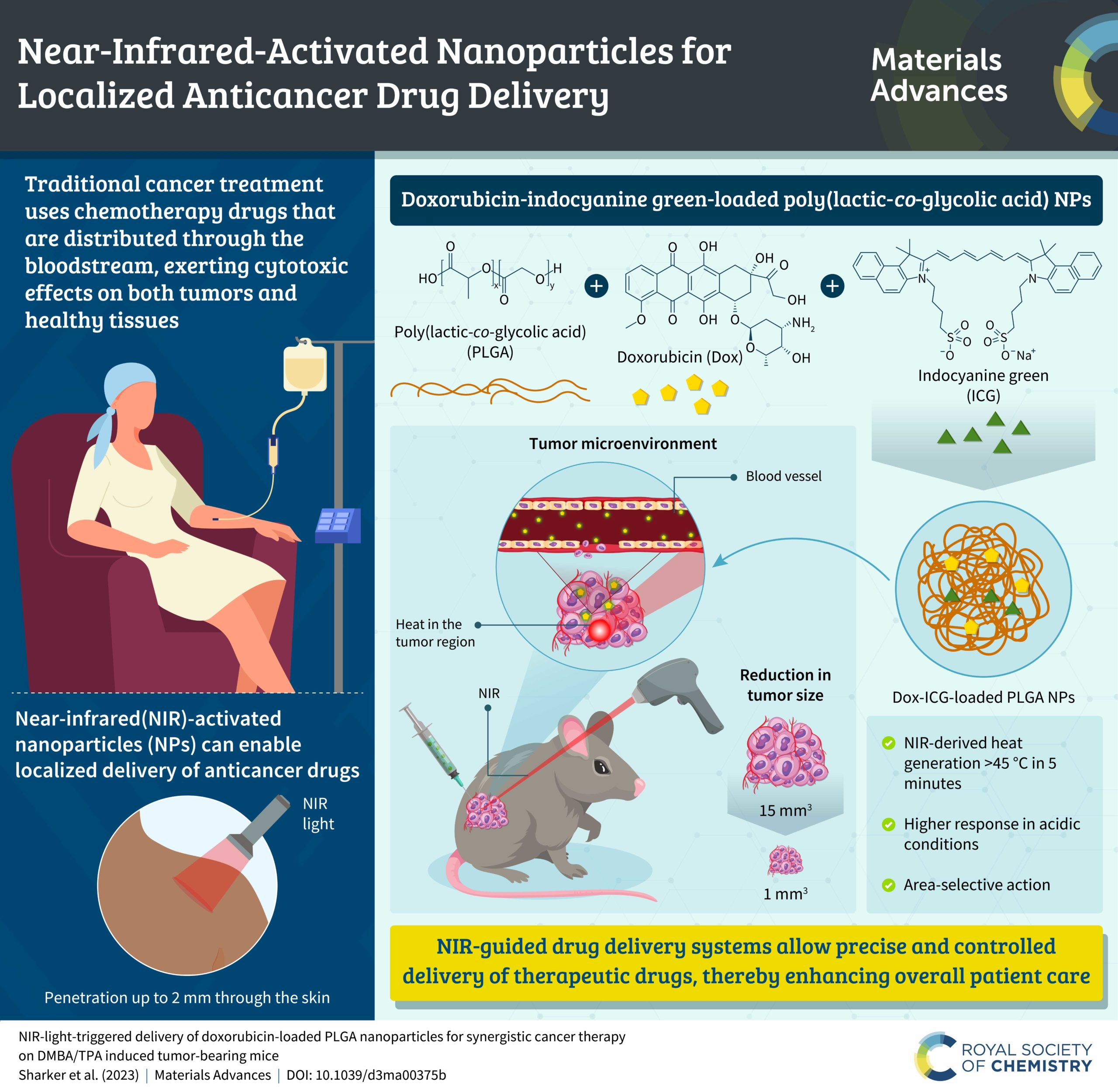To celebrate some of the excellent work that has been published in Materials Advances this year, we asked some of our authors to discuss their work in more detail. In this post, we hear from Dr Shazid Md. Sharker about their recently published article entitled “NIR-light-triggered delivery of doxorubicin-loaded PLGA nanoparticles for synergistic cancer therapy on DMBA/TPA induced tumor-bearing mice“.
Discover the key message from this article
Meet the author
Dr Shazid Md. Sharker obtained his PhD in 2016 from the Korea Advanced Institute of Science and Technology (KAIST), Daejeon, South Korea. Dr Sharker got a research training experience from the School of Medicine, Stanford University, California, USA. Currently, he is working as an Associate Professor in the Department of Pharmaceutical Sciences at North South University (NSU), Dhaka, Bangladesh. Dr Sharker plans to continue exploring nanotechnology at NSU to expand his understanding of nanoscale biological interactions. He aims to develop polymer and liposome-based nanocarriers and discover new nanoparticles (NPs) having both therapeutic and diagnosing (theragnostic) applications.
An interview with the author
What aspect of your work are you most excited about at the moment and what do you find most challenging about your research?
Drug delivery technology is heavily reliant on technology; like others, I find excitement in developing or leveraging new tools, methods, or technologies that can enhance nanotechnology in drug delivery and its outcomes. Securing funding for research projects is a common challenge. Finding a balance between teaching responsibilities and research pursuits can be challenging for academics. Heavy teaching loads may limit the time available for focused research.
How do you feel about Materials Advances as a place to publish research on this topic?
The prospect of publishing in reputable journals and receiving recognition for one’s work can be a source of great satisfaction and motivation. It made me decide on an open-access journal like Materials Advances and a well-known publisher like RSC as a place to publish research on this topic.
Can you share one piece of career-related advice or wisdom with early career scientists?
The research career is like a journey, just like moving from one place to another. In both research and study, obstacles can be overcome, and new discoveries can be made, and a sense of progress and growth. A successful research career is not solely defined by the number of papers published but also by the ability to adapt, collaborate, and contribute meaningfully to their field and beyond. Cultivating a diverse skill set early in their career can position them for long-term success and make them more adaptable to the evolving landscape of scientific research. While becoming an expert in their chosen area is crucial, having a range of complementary skills can enhance scientists’ versatility and make them more resilient in a rapidly changing research landscape.












